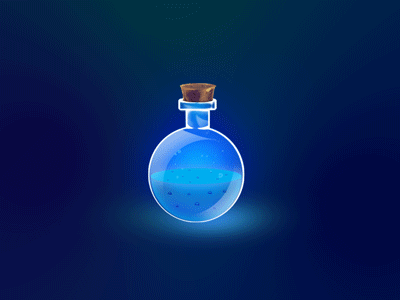*Please note: the picture above has descriptive alt text that we wrote, but is only usable for screen readers as it is a featured image.
In the disability or chronic illness communities there are people who use The Spoon Theory created by Christine Miserandino in 2003 to describe energy depletion or fatigue. In my experience describing my fatigue using the spoon theory created more questions, such as, “how many spoons do you have?” or “how do you replenish the spoons?” This was not ideal but it was the best way to depict what I was experiencing.
One day, I was playing World of Warcraft online and I thought about how having no mana made it difficult to do anything in the game. Mana in most games is the energy bar that allows the character to use their abilities. That’s when I came up with the mana theory which resonated with people who did not understand The Spoon Theory.
Mana theory addresses fatigue and energy from any disability which includes – but is not limited to – mental health, physical, or learning disabilities.
People have different sized mana bars, and the usage of their mana depends on how they are feeling or managing, and their tasks. There is no “one size fits all” approach to this theory as everyone has varying fatigue, energy or pain thresholds.
Mana theory addresses fatigue and energy by how it is depleted and replenished. In a game, mana can be replenished by specific foods, people transferring energy, by sitting down, being well rested, or sometimes nothing can replenish mana and people just need to rest and wait. Then there are buffs – which are things that boost mana for a short period of time, and debuffs – that can continually sap mana in the game.
This theory has real world implications, as fatigue and the lack of energy can be frustrating and isolating. Sometimes people can regain their mana by eating better, resting, having someone’s support with chores, meals, or groceries, or getting adequate sleep.
In some cases, people can do everything to regain their mana, but they are still drained of energy because they were not able to get adequate sleep, they are experiencing pain, a flare up of symptoms, or they caught the flu. This is like a debuff sapping mana. Sometimes medication and adequate rest can help with symptoms such as fatigue, pain, or mental health needs like a buff which gives the person some of their mana back.
In some cases, nothing will replenish the person’s mana and they will need to wait, which will impact their ability to do basic day to day tasks or the ability to socialize.
Every single thing uses up mana – such as washing their hands, talking to people, getting out of bed – to bigger events such as going out to a movie, or out with some friends. The amount of mana drains from whatever level the person had when they woke up, and can deplete quickly.
Another aspect of this theory that is represented in games is that if mana is not replenished adequately and it remains low, the character starts using up their health bar in order to do their abilities or to manage the debuff. In the case of people’s mana, if it becomes too low and remains low, it will start deteriorating the person’s health.
The mana theory addresses more aspects of fatigue and energy which can be helpful for people trying to explain what they are going through. Symptoms of fatigue and the lack of energy can be really difficult to explain to people who do not experience fatigue or other symptoms that sap energy, and hopefully this theory can help start a much needed conversation on the subject.
I would like to acknowledge that the word “mana” has different meanings for different people, as well as cultural and religious significance. I am only using it in the context of video games. For more information, check out this link:
https://www.britannica.com/topic/mana-Polynesian-and-Melanesian-religion


[…] other actions and you have to replenish your MP before you can do those things again. Also called mana theory… But even that’s not quite enough for me because in all the video games I’ve […]
LikeLike